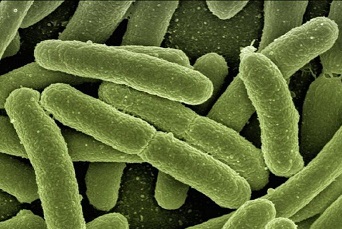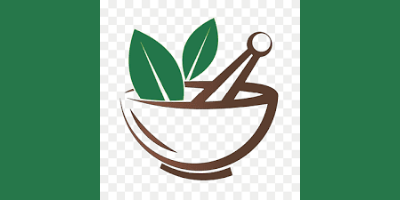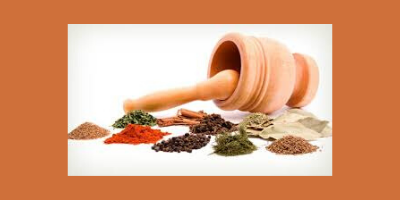Andrographis paniculata, its binomial name, the Kalmegh of Ayurveda is an erect annual herb extremely bitter in taste in each and every part of the plant body. The plant is known in north-eastern India as 'Maha-tita', literally 'king of bitters' and known by various vernacular names (Table below). The plant is known in north-eastern India as 'Maha-tita', literally 'king of bitters' and known by various vernacular names.
It is also known as 'Bhui-neem', since the plant, though much Smaller in size, shows similar appearance and has bitter taste as that of neem (Azadirachta Indica).
In English it is known as the Creat .
In Gujarati it is known as Kariyatu
In Hindi it is known as Kariyat.
It is widely cultivated in southern Asia, where it is used to treat
Infections and some diseases, often being used before antibiotics were created. Mostly the leaves and roots were used for medicinal purposes.
Scientists have studied this herb for nearly thirty years.
King Of Bitters- Kariyatu is a herb with many therapeutic powers and actions: antibacterial, antibiotic, analgesic, anti-inflammatory, antioxidant, anti-carcinogenic, anti-thrombotic, anti-viral, anti-microbial, digestive, blood purifier, prophylactic, vermicidal and adaptogen (helps to normalise a physical function, depending on what the individual needs, eg it will lower high blood pressure, or raise low blood pressure).
King of bitters has been used in Ayurvedic medicine for centuries, revered for infectious diseases and for its preventative action. The Spanish flu of 1919 was a global epidemic that killed millions of people, worldwide, causing grief and hardship to many families. In India, where the benefits of this herb were well known, Kariyatu was credited with stopping the deadly virus.
Today, many people find it is valuable as an infusion of 2-4 leaves in boiling water (or the fresh leaves are chewed) to prevent the common cold, flu, viruses and bacteria. The herb in studies, has shown solid evidence of success in treating colds during the first stages of a cold, and can reduce the severity and duration of symptoms.
This herb assists the body to make antibodies to counteract invading microbes and to act as a scavenger to destroy invaders and cancer cells. Research scientists have found that the Kariyatu in the plant can cross the blood-brain barrier, and it is also of benefit to the central nervous system.
Some of the therapeutic uses of king of bitters include:
Fevers, fibromyalgia, oedema, headaches, inflammation and muscular pain, fatigue, hepatitis; respiratory, skin and lymphatic conditions; multiple sclerosis, lupus, Candida, diabetes, diarrhoea, thrombosis, and malaria. With scientists saying the super-bugs of our present age are becoming resistant to the most powerful antibiotics, the therapeutic powers of king of bitters- Kariyatu could help to give us protection.
Kariyatu may assist in the treatment or prevention of liver damage, infectious disease and some forms of cancer.
Kariyatu itself should not be relied on as a cure for cancer, but oncologists are engaged in ongoing research about the effect that andrographolide/kariyatu appears to have on cancer cells. In in-vitro tests, extracts of andrographis demonstrate an ability to arrest the growth of cancerous tumours.
A 2003 review calls andrographis/kariyatu extract "an interesting pharmacophore with anticancer and immunomodulatory activities." Andrographolide still needs much more study before physicians can make a recommendation about its efficacy, but it may hold the key to finding an ultimate cure for cancer.
Kirayat Kirayat.
Other benefits of Kariyatu include:
Kariyatu promotes a healthy heart by preventing blocked arteries and blood clots
Kariyatu helps your body fight infection and can reduce the length of a cold
Performs as well as many conventional drugs but without the harmful side-effects
Kariyatu has anti-carcinogenicity properties.
Kariyatu is used to support healthy digestive, cardiovascular and urinary systems.
In one Chilean study, the herb had a significant drying effect on the nasal secretions of cold sufferers who took kariyatu tea daily for five days.
Women suffering from menstrual pain, and other female disorders should drink kariyatu tea.
The main active component in andrographis is andrographolide, which is bitter in herbal medicine. Bitter herbs have an affinity with the heart, liver, and gallbladder, and most have a cooling effect on the body with the ability to reduce a temperature. This herb may be effective in preventing the formation of blood clots and preventing the re-clogging of arteries after an angioplasty, a procedure used to treat blocked arteries. Andrographis also activates fibrinolysis, a natural process in the body in which blood clots are dissolved. It also relaxes the smooth muscle in the walls of the blood vessels and has a blood pressure lowering effect.
RECIPE FOR KARIYATU TEA
Take 2 cups water and a few kariyatu leaves. Boil together and drink. Do not add honey or sugar to it. Just drink as is.
—
Ammarah
Radio Islam
+27118547022
ammarah@radioislam.co.za
www.radioislam.co.za





0 Comments